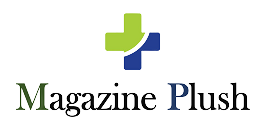Tips on Starting and Marketing a Dietary Supplement and Business

With more and more people becoming more health conscious these days, starting up a dietary supplement business is a profitable business idea. However, it’s important to note that with starting any type of food-related business you must follow the rules and regulations associated with food-grade products that apply to where you live. You must also do your research when it comes to dietary supplements (especially if you create your formulas), and working with a professional is also recommended.
Next comes the fun part (for some people), and that’s naming your brand and creating your logo. The naming of your business is necessary to write up your business plan (to get financing) and to incorporate your business as a legal entity. After this, you’re ready to start marketing your brand.
Choose a Niche
Dietary supplements can be divided into various categories, and it may be a good idea to stick to a specific area of dietary supplements, such as vitamins and minerals or herbs. It may seem more convenient to sell all different types of dietary supplements, but when you choose a specific area you can become more of an expert. This will help you become a more trustworthy brand among your target audience.
Identify Your Target Audience
Your target market is the broad group of people that you need to identify when creating your business plan. This is the group of people that you believe will be interested in your product, whereas your target audience is a more specific group of people who will be the focus of your marketing campaigns.
Try Both Digital and Traditional Marketing Strategies
Digital marketing is any marketing that occurs online, whereas traditional marketing is done offline. Digital marketing works best for both online-only (e-commerce) and in-person businesses, and traditional marketing is still a great strategy for in-person businesses. No matter which type of business structure you have, try both digital and traditional marketing strategies.
Digital: Content Marketing
Content marketing uses meaningful content such as pictures, videos, and online print (such as blog posts) to market to a specific group of people. This content can be shared via social media (i.e., platforms like Facebook and Instagram) and through emails. With content marketing— and any other type of digital marketing— the content should direct people to your website.
Traditional: Event Marketing
Attending conventions, seminars, and other events related to dietary supplements is a great way to market your business. These events can be local or you can travel to attend them, and they’re beneficial for both e-commerce and in-person businesses.
Digital: SEO Marketing
SEO (search engine optimization) is a strategy that brings people to your website by using keywords that are used in search engine searches. For example, when a Google searcher types in a specific word in their search, your website could come up as a top result when SEO is applied effectively. This is especially helpful if you have a blog on your website.
Traditional: Printed Advertisements and Documents
Printed ads and documents are newspaper/magazine articles and flyers— physical print that people can hold in their hands. Even though all of this can be accessed online, tangible documents such as these are still widely used and effective at attracting new customers— especially if there’s a coupon or some other incentive attached to it.
Use Promotional Merchandise to Help Build a Brand
A brand is a way a business (and its products/services/individuals) is perceived by the public. It’s made up of what is seen, such as the logo and company name, but it’s also made up of what is unseen, such as the company’s core values. Giving your dietary supplement business a brand identity turns into a lifestyle brand, where it fits into your target audience’s way of life, and selling promotional merchandise alongside your products can help strengthen this identity. Because dietary supplements are centered around nutrition, fitness, and overall wellness, examples of promotional items to sell include:
- Water bottles
- Shakers and blender bottles
- Microfiber golf towels
- Dumbbells and other weights
- Bike accessories
You can also benefit from selling everyday items as a part of your merchandise, such as hats, T-shirts, duffle bags, watches, and coffee mugs.
Because health and wellness are becoming more of a priority among more and more people, a dietary supplement business has the potential to be very profitable. Still, you’ll want to do your research and put in the work to market (and prove) yourself to be a trustworthy brand.





